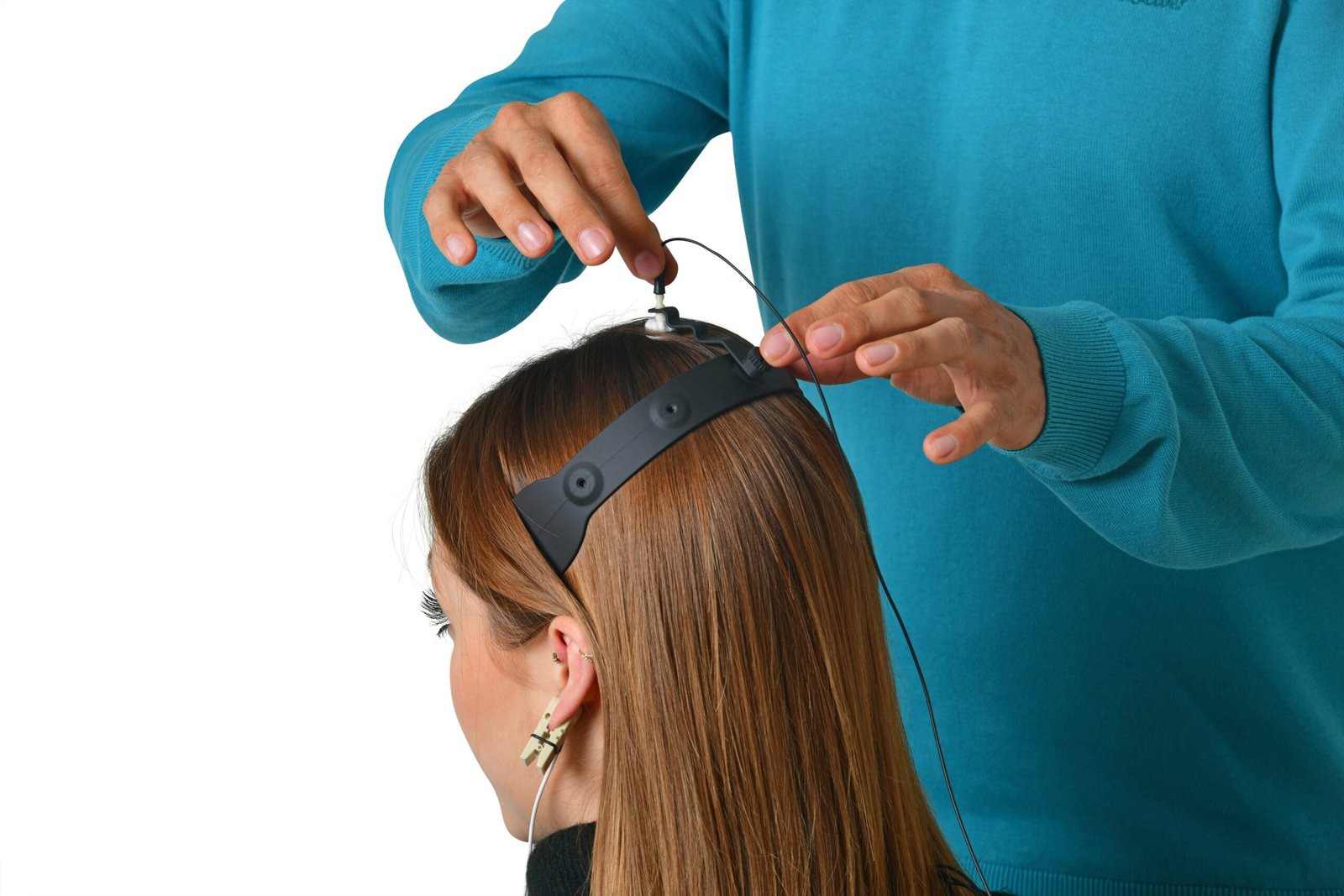Numerous applications have been developed to assist veterans managing PTSD, offering tools ranging from mindfulness exercises to therapeutic support.
Post-Traumatic Stress Disorder (PTSD) is a mental health condition that can develop following the experience of traumatic events. Within the context of UK military veterans, PTSD is particularly prevalent due to the nature of their service, which often includes exposure to combat, life-threatening situations, and other distressing experiences. Veterans who have served in conflict zones may find themselves grappling with memories and emotions associated with traumatic incidents long after they have returned home.
The symptoms of PTSD can vary significantly among individuals, but they generally include flashbacks, nightmares, and severe anxiety. Furthermore, veterans may experience emotional numbness, difficulty sleeping, and increased irritability, which can ultimately disrupt everyday life. Relationships with family and friends may suffer, as veterans might withdraw socially or struggle to communicate their feelings. This isolation can exacerbate symptoms, leading to a cyclic pattern that makes recovery challenging.
According to recent studies, a significant number of UK veterans experience PTSD, with some estimates indicating that approximately 10% may be affected. While this figure highlights the importance of recognizing PTSD as a substantial issue within the veteran community, it is crucial to note that many veterans remain undiagnosed or do not seek treatment due to stigma or lack of awareness about available support. Understanding the effects of PTSD on daily life and its prevalence among veterans is essential in dismantling misconceptions and fostering a supportive environment where those affected feel encouraged to seek help.
As awareness of PTSD increases, so does the understanding of the necessity for tailored interventions and resources for veterans. Effective treatment options are available, which can significantly improve the quality of life for those struggling. By acknowledging the impact of this condition, the veteran community can begin to address the mental health challenges head-on and facilitate a recovery process that has positive outcomes.
The Role of Technology in Mental Health
The landscape of mental health support has undergone significant transformation due to advancements in technology, especially for individuals dealing with challenges such as PTSD. Digital tools and applications have emerged as powerful resources, enabling veterans to manage their mental health effectively. The integration of technology into mental health care offers a unique opportunity for those in need to access support in real-time, regardless of their geographic location.
One of the primary advantages of technology in mental health is its ability to provide timely access to information and resources. With a myriad of apps specifically designed for mental health support, veterans can utilize these tools to learn about PTSD, recognize symptoms, and explore coping strategies. Such applications often include features like guided meditations, mood tracking, and even virtual therapy sessions, allowing users to engage in self-care at their convenience.
Moreover, technology fosters connectivity among veterans, thereby reducing feelings of isolation often associated with PTSD. Online support groups and forums provide a platform for individuals to share their experiences, seek advice, and cultivate a sense of community. This online connectivity can be particularly beneficial for veterans who may struggle to share their feelings in traditional face-to-face settings. Technology eliminates some barriers to communication, making it easier for individuals to reach out for help when needed.
The role of technology in mental health is not merely supplementary; it has become a fundamental element of modern therapeutic practices. With the growing recognition of the significance of mental health, these tools are not only aiding veterans in managing their conditions but are also playing a critical role in promoting overall psychological well-being. As technology continues to evolve, it holds the potential to offer even more innovative solutions for veterans seeking support in their mental health journey.
Criteria for Choosing Apps for PTSD
When selecting applications specifically designed to assist veterans coping with post-traumatic stress disorder (PTSD), several critical criteria must be examined to ensure their effectiveness and safety. User-friendliness emerges as a pivotal factor; the app should be straightforward, enabling veterans of varying technological proficiency to navigate its features effortlessly. An intuitive design can significantly impact engagement levels, facilitating regular use and interaction with the app.
In addition to usability, it is imperative that these apps incorporate evidence-based practices. Apps claiming to help with PTSD should be supported by scientific research and clinical studies, ensuring that the methodologies employed are proven to aid in the management and alleviation of PTSD symptoms. This criterion reinforces the application’s credibility and effectiveness, making it a trustworthy resource for users.
Accessibility is another essential consideration. The app should be available across multiple platforms, including iOS, Android, and web browsers, allowing veterans to access tools regardless of their device. Consideration for diverse user needs includes offering features such as adjustable font sizes, audio options, and content tailored for various levels of technological familiarity.
Data security cannot be overlooked, particularly for applications handling sensitive information regarding mental health. It is vital that these apps adhere to stringent privacy protocols, ensuring user data is encrypted and stored securely. Users must feel confident that their personal information remains confidential and protected from unauthorized access.
Finally, specific features that address the unique challenges faced by veterans with PTSD are indispensable. This may include tools for mindfulness and relaxation, symptom tracking, mood logs, and peer support forums. By integrating these critical elements, the selected apps can provide robust support for veterans on their journey toward recovery.
Top 10 Life-Changing Apps for Veterans with PTSD
Numerous applications have been developed to assist veterans managing PTSD, offering tools ranging from mindfulness exercises to therapeutic support. Here are ten noteworthy apps specifically designed to address the unique needs of veterans:
1. Headspace: This meditation app provides guided sessions aimed at reducing stress and anxiety, making it particularly beneficial for veterans seeking mindfulness practices. It offers a range of topics, including sleep, focus, and stress management.
2. Breathe2Relax: A portable stress management tool, Breathe2Relax encourages controlled breathing techniques to help manage anxiety. The app includes education on stress and anxiety and embraces deep breathing exercises to promote relaxation.
3. PTSD Coach: Developed by the U.S. Department of Veterans Affairs, PTSD Coach offers veterans specific tools for managing PTSD symptoms. Users can track their symptoms, access self-assessment tools, and find local resources for additional support.
4. Virtual Hope Box: This app aims to enhance coping skills by providing distraction techniques and positive self-affirmations. It features a range of resources, including mindfulness exercises and grounding tools specifically tailored for veterans.
5. Moodfit: Moodfit offers an all-encompassing approach to mental wellness, assisting users in tracking mood patterns, setting goals, and accessing therapeutic resources. Its focus on customized mental health tools can significantly support veterans.
6. Squirrel: A unique app, Squirrel is designed to foster community connections among veterans. It allows users to share experiences, seek support, and build relationships with peers who understand their journeys.
7. Sanvello: Sanvello combines self-care resources with peer support and professional guidance. It includes tools for managing anxiety, depression, and stress, which can be particularly valuable for veterans navigating PTSD.
8. Happify: Designed to boost emotional well-being, Happify uses science-based activities and games to enhance resilience and reduce stress levels. This interactive platform can benefit veterans looking for engaging ways to manage their mental health.
9. Mindfulness Coach: Created by the VA, this app offers an introduction to mindfulness and its practices. It includes guided meditations, reminders, and customizable programs focused on stress reduction and emotional regulation.
10. TalkLife: TalkLife is an online support platform allowing users to share their feelings and experiences in a safe environment. This community-driven app facilitates peer support among veterans, fostering connections and understanding.
These applications present various methods to support veterans facing PTSD challenges, ranging from mindfulness and self-assessment to community engagement and professional resources. Each app is designed to offer veterans practical tools for improving their mental health and overall well-being.
Support and Community Features
For veterans dealing with post-traumatic stress disorder (PTSD), the journey to recovery can often feel isolating. In such situations, community support plays a critical role in the healing process. Many apps designed for veterans not only offer therapeutic content but also facilitate connections among users, thus fostering a sense of belonging and shared experiences. These community features can significantly enhance the effectiveness of the apps by providing a platform where veterans can connect with others who understand their struggles.
Several applications incorporate forums or chat rooms that encourage veterans to share personal stories and coping strategies. This peer support is invaluable, as it helps users realize they are not alone in their experiences. Sharing challenges and triumphs can empower individuals while reducing feelings of isolation that often accompany PTSD. Furthermore, these discussions can provide insights into different therapeutic pathways, allowing users to explore options that may resonate with their specific situation.
Moreover, some apps offer structured group support sessions led by mental health professionals, creating a safe environment for veterans to discuss their feelings and experiences. This structured approach not only promotes emotional healing but also helps establish reliable social networks. The encouragement from fellow veterans can motivate users to stick to their recovery plans and embrace new strategies for coping with their symptoms.
In addition to fostering connections, many apps include resources such as event calendars or local meetups, allowing veterans to participate in community activities. These initiatives enhance the sense of community and can be particularly beneficial as they encourage face-to-face interactions, which are crucial for building trust and camaraderie. Ultimately, the community features in these apps offer veterans a space to feel validated and supported, making a significant impact on their recovery journey.
Success Stories: Veterans Using Apps
The experience of veterans using mobile applications designed for mental health support provides valuable insights into the effectiveness of these digital tools. Many UK veterans have reported positive outcomes in their well-being and recovery journeys through the integration of technology in their therapeutic practices. For instance, one veteran recounted how a mindfulness app became an essential part of his daily routine. Initially hesitant to embrace technology, he gradually discovered that guided meditation sessions not only helped him manage anxiety but also improved his sleep quality. He noted, “Using the app allowed me to find a moment of peace during chaotic times, and it reinforced my commitment to self-care.”
Another veteran shared her story of utilizing a peer support app that connected her with others who understood her struggles with PTSD. The platform facilitated meaningful conversations with fellow service members, which offered her a sense of camaraderie and support that she felt was often lacking. She highlighted, “It’s comforting to know that I am not alone, and through the app, I found friends who are willing to listen and share their stories.” This sense of community plays a crucial role in fostering resilience among veterans, demonstrating that digital platforms can serve as an extension of traditional support systems.
Furthermore, several veterans have embraced journaling apps to document their feelings and track their progress. One individual explained how this practice allowed him to identify triggers and patterns in his emotional responses. “I can clearly see how far I’ve come,” he stated, appreciating the tool’s role in his ongoing recovery. He emphasized that the act of writing provided a therapeutic outlet for his emotions and enabled him to cultivate a deeper understanding of his mental health. These success stories underscore the profound impact of technology-driven applications in aiding veterans on their paths to improved mental well-being.
Professional Guidance in Digital App Usage
The proliferation of digital applications designed to support mental health offers veterans with PTSD a unique opportunity to enhance their well-being. However, it is imperative to emphasize that the utilization of these technological tools should not occur in isolation. Instead, combining these apps with professional guidance can significantly augment their effectiveness in addressing the complexities associated with post-traumatic stress disorder.
Veterans are often faced with distinct challenges as a result of their service, making it crucial to seek tailored advice from healthcare providers or mental health professionals. These experts can help veterans discern which applications are most beneficial based on their individual symptoms, needs, and lifestyle. Engaging with a professional ensures that the chosen tools align with established therapeutic practices and personal recovery goals.
Furthermore, mental health professionals are equipped to provide critical insights into how these apps can complement traditional therapeutic approaches, such as cognitive behavioral therapy (CBT) or exposure therapy. They can also guide veterans in developing a structured routine that incorporates app usage, allowing for a more comprehensive treatment strategy. This synergy between technology and professional support fosters not only improved coping mechanisms but also reinforces accountability in the healing process.
It is also essential to monitor the effectiveness of these digital tools over time with the help of healthcare professionals. Regular check-ins can facilitate adjustments based on the evolving nature of one’s PTSD symptoms and life circumstances. This proactive approach ensures that veterans are leveraging the full potential of the apps while also addressing any adverse effects that may arise from over-reliance on technology. Ultimately, the integration of professional guidance with digital app usage serves as a vital component in the ongoing journey towards recovery for veterans dealing with PTSD.
Addressing Concerns About Technology and Data Privacy
In an era where technology significantly influences mental health management, veterans dealing with PTSD must navigate the complexities and potential risks associated with mental health apps. These digital tools can provide valuable support; however, concerns regarding data privacy and app security are paramount and deserve thorough analysis.
One of the primary concerns is the sensitivity of personal data shared with mental health applications. Many such apps require users to disclose personal information, including symptoms, therapy history, and even location data. This raises the question of how this information is stored, utilized, and whether it is shared with third parties. Reputable applications should have clear data privacy policies that detail how user data is protected and the extent to which it may be shared. It is essential for users to carefully review these policies before engaging with an app.
Another crucial aspect is app security. With cyber threats and data breaches becoming increasingly common, users must consider the security measures implemented by app developers. Features such as end-to-end encryption and secure authentication processes are indicators of a trustworthy application. Veterans should seek applications that not only prioritize user experience but also invest in robust security protocols to safeguard sensitive information.
Furthermore, the quality of support offered by these mental health apps can significantly impact their effectiveness. Veterans are encouraged to select applications developed in collaboration with mental health professionals and organizations. This collaboration can provide assurance that the content is evidence-based and suited to their unique needs.
In summary, while mental health apps can be instrumental in supporting veterans with PTSD, it is critical to be vigilant regarding data privacy and security. By choosing reputable applications and being cognizant of the information shared, veterans can utilize these tools effectively while minimizing potential risks.
Conclusion: Embracing Digital Solutions for Mental Health
In today’s technology-driven world, digital solutions have emerged as essential tools for enhancing mental health support, especially for veterans coping with PTSD. The application of various mental health apps can significantly aid in daily coping strategies, self-care, and emotional well-being. Throughout this discussion, we explored a range of applications specifically designed to address the unique challenges veterans face, from mindfulness and meditation platforms to symptom trackers and support communities.
It is crucial for veterans to recognize the potential benefits these apps offer. Many of the tools discussed provide tailored resources that resonate with the experiences of those who have served. By integrating these digital solutions into their lives, veterans can gain easier access to coping techniques and support networks that are tailored to their needs. However, as they embark on this path, it is essential for individuals to remain mindful of their mental health, ensuring that technology serves as a complementary resource rather than a replacement for professional guidance and in-person therapy.
Moreover, the use of these applications can facilitate a greater sense of community and connection. Many veterans report feeling isolated after transitioning back to civilian life; finding an online community can foster understanding and provide encouragement. Exploring these recommended apps may be a step towards not only personal healing but also engaging with others who share similar experiences.
In conclusion, digital solutions have the potential to make a significant impact on the journey toward mental wellness for veterans. By leveraging technology to enhance their support systems, veterans can take proactive steps in managing their PTSD effectively. As they navigate these resources, it is vital to prioritize their mental health and seek a balanced approach that combined technology with traditional therapeutic methods.






